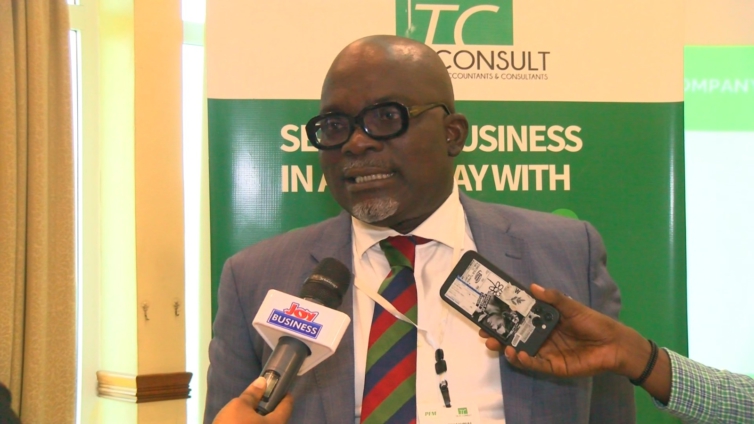The Ghana Revenue Authority (GRA) has been urged to develop unique techniques to ensure tax compliance by the informal sector to prevent a reoccurrence of the current economic crisis.
Ghana’s informal sector, even though makes up about 60 percent of the workforce contributes less taxes to the economy.
Speaking on the sides of a Public Financial Management (PFM) Seminar, Managing Partner of Trust Consult, Charles Mensah also urged the public to play their role as citizens by religiously filing their taxes.
“People should learn to pay taxes, people should learn to collect receipts. People do not know that every April, the following year, one needs to file and pay their tax”.
Using developed countries as an example Mr. Mensah said in advanced countries filing of taxes are a serious requirement for individuals and businesses that must not be breached.
“In other countries, citizens file their taxes religiously but here, people only file taxes when they need a service which needs documents indicating that they are tax compliant,” he said.
He warned that non-compliance will deny the country of the needed revenue required to develop the country.
“To prevent a recurrence of the current economic crisis, I think whatever findings are in the Public Financial Management report are implemented to the later”, he said.
He argued that there is the need to educate Ghanaians to be conscious of the collective wellbeing of the country through tax payment.
“I think there should be commitment across all board. Also, we need to look at the public good. The public good here means that all the services we enjoy must be funded but donor funding will not help us”.
Mr. Mensah maintained that Ghanaians must be reminded of the importance of generating revenue internally as opposed to going out to beg for aid.
“What we need is our own sources of funding; which is taxes. We need to implement a system where cars go to markets and other places to help people in the informal sector file their taxes,” he said.
Mr. Mensah indicated that if organisations operate in the light of public good, they will build the capacity of their account holders which will in turn, ensure proper accountability of funds.
“After listening to some spending officers and account holders, we realised that they needed a refresher course or training. We feel that things happen in institutions not because people have the intention of making it happen but people do not actually know the rules. So we organised this training to take them through the rules, the procurement act and the legislative instrument supporting the PFM act,” he stated.
His message to Public Financial managers was “make sure that whatever you do in the office, you’re doing it for the public good and therefore, do things right.”
Latest Stories
-
Residents of Dome-Kwabenya on edge ahead of December elections
21 mins -
Moffy drops new single ‘Wo’, blending culture and modernity
33 mins -
Don’t bring soldiers to polling stations – Martin Kpebu
46 mins -
Ogyeahohuo Yaw Gyebi II retained as President of National House of Chiefs
1 hour -
Embrace ICT to fit in digital world – Ho NYA boss to youth
2 hours -
We don’t want armed soldiers at polling stations – Tanko-Computer
2 hours -
Drama as police corner armed robbers inside locked forex bureau at Lapaz
2 hours -
30% quota for less privileged shows Free SHS is inclusive – Ofosu Nkansah
2 hours -
Nigerian-born conquers childhood hearing loss to become KNUST’s overall best graduating student
2 hours -
ECOWAS Court orders compensation for violations against New Force’s Shalimar Abbiusi
3 hours -
Dreams FC denies allegations of attempting to sign Najeeb Yakubu
4 hours -
Election 2024: ‘Right to free and fair elections non-negotiable’ – Akufo-Addo
4 hours -
Kurt Okraku took out my passport from the U23 squad that travelled to Japan – Najeeb Yakubu alleges
4 hours -
Where hope fails: Ghana’s decaying home for the destitute
4 hours -
NDC Mining Committee for 2024 campaign refutes allegations of recruiting thugs for elections
4 hours

